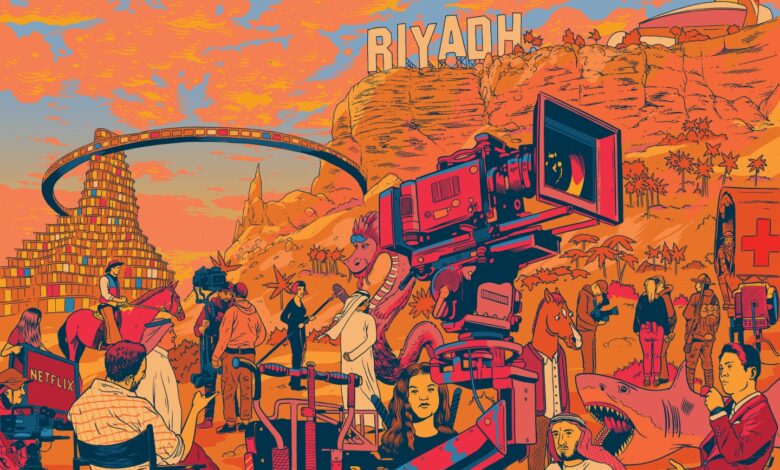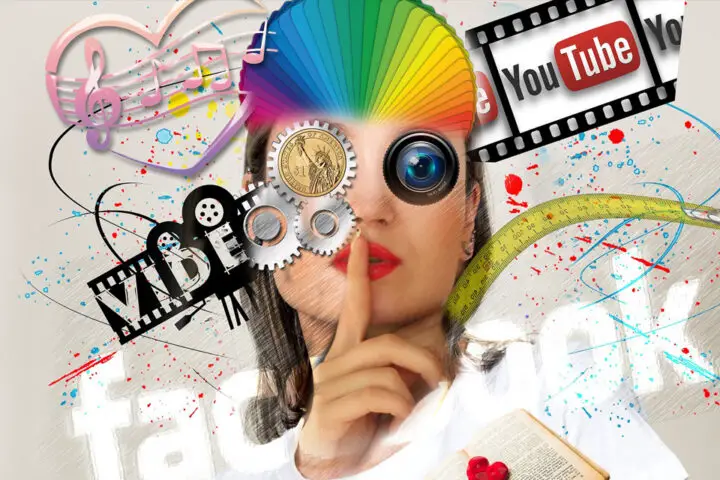How are Arabic Influences Creeping into the Western Entertainment Industry?

The idea of separate entertainment industries based on regions of the world could soon be obsolete. Thanks to the borderless realms of the internet and the fact that most people consume their entertainment online as covered here on The-Pool, the concept of there being detached western and Arabic sectors seems to now be redundant.
The merger has already begun, with a vast number of famous and influential people who have had success in North America and Europe being of Middle Eastern or Arabic descent.
Numerous Huge Names Have Arab Roots

As social mobility has massively increased over the years, so too have migration figures. Humans are free to travel far and wide and often capitalize on this freedom by casting their eyes on the horizon and exploring new countries. Whether as a temporary break from the mundane in the form of a holiday or a fully-fledged move abroad, the freedom of movement has meant that societies have diversified, and cultures mix more than they ever have before.
Take, for example, the representation of Middle Eastern culture in the west. Arabic influences have already spread deeply in the western entertainment industry, though it’s likely that many people may not even be aware that some of the most important figures are of Middle Eastern heritage according to Yalla! Let’s Talk.
For instance, one of the central tech giants of the last thirty years, Steve Jobs, was half Syrian. Then there’s the second-highest-grossing female actress of all time behind Scarlett Johansson, Zoe Saldana, who has Lebanese roots and wears them with pride in the form of a tattoo in Arabic. Saldana has acted in three of the top five most successful films ever, which were Avatar, Avengers: Infinity War, and Avengers: Endgame. She serves as an inspiration to anyone from the region who wants to make it to Hollywood.
Some other names that enjoy Middle Eastern heritage include Rami Malek, whose parents were both Egyptian; Jade Thirlwall, who has Yemeni and Egyptian roots; and Wentworth Miller, who has Syrian and Lebanese genes in his family. These celebrities show how Arab influences have already begun to creep into western entertainment, and they may have helped attract people from the Middle East to their content.
People From Different Regions Enjoying the Same Forms of Entertainment
The greatest indicator that segregated entertainment industries based on regions of the world could be a thing of the past is the fact that certain forms are enjoyed everywhere, regardless of cultural differences. This is particularly apparent in the gaming industry, where the internet has helped with the spread of titles to all the corners of the earth.
In the Middle East, the three most popular games at the time of writing are FIFA, Fortnite, and PUBG. These have all managed to boom in the region thanks to the internet, and the wider availability that the technology has brought about. It is estimated that Saudi Arabia alone contributes more than $1 billion to the global games market, highlighting how much of a powerful effect this region can have in the future.
This is a growing market as well, considered to be at the forefront of the new internet revolution. Now that the online world has successfully spread throughout the west, major brands are looking to invest in emerging internet markets in the Arab world. This means that there will be more interest from international companies that want to gain a foothold in the Middle East.
It’s clear that the influx of games into the Middle East has been assisted by the increasing access to the web. This is most apparent with the rise of the online casino industry in the region and the fact that well-known brands are marketing themselves to players there. According to a list of best online casinos for Kuwaiti players on ArabianBetting, 888casino and Betway are both available in the country – two of the biggest names from the west. There are enticing bonuses at each, with the sites translated into Arabic as well.
Most of the game titles are the same as those offered in US markets, which underlines the shared interests between regional demographics. Though geographically divided by thousands of miles, online bettors are united by their interests in online casino games. This could continue in every offshoot of the gaming industry, where cultural disparities are less apparent.
All Entertainment May Soon be Multicultural

The wonderful thing about the entertainment industry is that it is always evolving and moving with the times, and it does its best to reflect society. Over the past century, as more people have emigrated to different countries and taken elements of their culture with them to pastures new, entertainment has reflected this.
There is currently more diversity in film and music than ever before, as producers are aware of the need to represent an accurate cross-section of society in their content. The idea of marketing a film or television series to a specific culture is a thing of the past, and this will be especially true as people from all over the world begin to spend more of their time existing in the global realms of the internet.
For example, Mark Zuckerberg’s vision of the Metaverse is a world with no borders or boundaries. Indeed, it’s a new universe that welcomes people from all over the real world and allows them to exist in the same bubble. It will hopefully lead to more collaboration between cultures than ever before and may even spark an evolution in some forms of entertainment. For example, newfangled forms of music could emerge, as well as movies that borrow themes from various countries.
The notion of western entertainment being for people from the west and Arabic entertainment being for people from the Middle East is outdated and belongs in the pre-internet era. The online world is breaking down borders and, in a few decades, there may be one global entertainment industry designed for all. The catalyst for this future society may be the Metaverse, which is expected to be ubiquitous by 2030.
